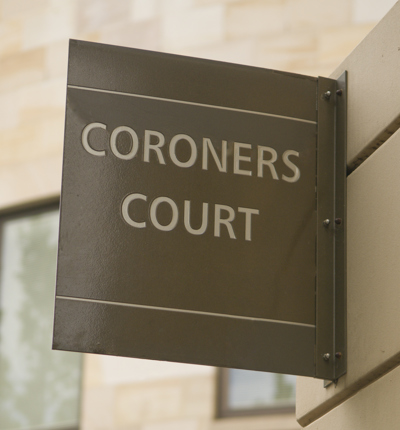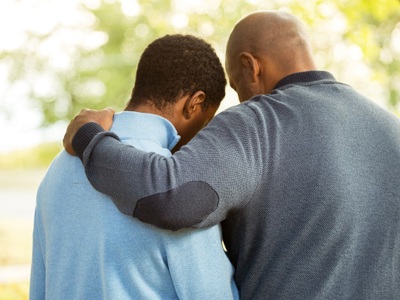
Inquests: What is the reality of our coronial system and legal aid for bereaved families?
Merry Varney and Caleb Bawdon from our human rights team discuss the current state of the coronial system and the challenges for bereaved families who must navigate through it.
Posted on 25 January 2023
Many of our clients only learn what an inquest really is when they come face to face with the coronial system at an inquest into the death of a loved one. This means that their first experience of the inquest process follows losing a family member where the death was violent, of unknown or unnatural cause or the deceased was in state custody (such as prison or a psychiatric hospital).
At their most basic level, an inquest is a forum for a coroner (sometimes sitting alone, sometimes with a jury) to investigate a death which may have unnatural causes. The aim is to answer four important questions:
- Who died
- When the death occurred
- Where the death occurred; and
- How the deceased came by their death.
Inquests can be very powerful tools for holding institutions and individuals to account. In answering these four questions, a Coroner can make findings of fact about a death, and inquests can lead to lasting and meaningful change to prevent future deaths. But unfortunately for many families the inquest process can be bewildering and incomprehensible, or as we have previously put it, inquests are the wild west of the law.
This is because the standards and conduct of coroners can vary widely across the country. Unlike the criminal or civil courts, the coronial system is made up of 85 local coroner’s services, which are not part of the national HM Courts and Tribunals Service, but instead administered and funded by local councils. The result is at best a variation in approach and set-up, and at worst dramatic inconsistency in how a death is investigated and the type of inquest held – how a bereaved family is treated is effectively a postcode lottery.
There is perhaps no better illustration of variation in Coroners than the experience of Andy and Amanda McCulloch, who have written a book about their experience of the inquest into the death of their daughter, Colette. The shocking conduct of the then Acting Senior Coroner who initially presided over their inquest (until stepping down following a threat of judicial review for bias) contrasts starkly with the thorough and family-centred approach of the coroner who replaced him. The McCullochs went from a coroner who openly dismissed the family’s evidence as ‘conjecture’, to one who publicly recorded Colette’s death as avoidable and found serious failings leading to her death.
It is often for this reason that so many bereaved families end up needing advice and assistance from specialist lawyers, to help them navigate the unpredictable and distressing coronial system and ensure their loved one’s death is appropriately investigated. A huge barrier to bereaved families accessing specialist legal representation is of course funding and often having just experienced an unexpected death, the worry of potential legal bills can be daunting and even prevent some from seeking advice.
As explained below the Government has expanded the availability of legal aid for bereaved families in inquests, but sadly many remain unable to access the advice and representation they need and the problems in the Coronial system itself remain.
Legal aid at inquests
Following successful campaigning by the charity INQUEST and bereaved families, non-means tested legal aid is now available for a very limited number of inquests – those which meet the Legal Aid Agency’s ‘Exceptional Case Funding’ criteria. This is in two circumstances only:
- Where Article 2 (the right to life) of the Human Rights Act is ‘engaged’ by the inquest, or
- The Legal Aid Agency makes a ‘wider public interest determination’ in providing a family with legal aid funding.
The process of applying for legal aid funding for such cases can be long and protracted – and often uncertain.
It can also be distressing for families, who (through their solicitors) have to make a detailed application to the Legal Aid Agency, setting out the circumstances of their loved one’s death and why they believe it meets the criteria for Exceptional Case Funding. Decisions are often delayed; and funding is frequently only granted on appeal, after first being rejected by the Legal Aid Agency. The family of 14-year-old Molly Russell, who had serious concerns about the role of social media companies in their daughter’s death (which were ultimately shared by the Coroner in her inquest), had to fight for legal aid after it was initially refused on the basis that Molly’s inquest did not fall into one of these categories. This is an experience shared by many of our clients.
Inquest hearings continue during the legal aid decision-making process. This often means bereaved families and their lawyers have no option but to attend hearings without confirmation of funding to protect their interests, as few coroners are willing to wait for a decision from the Legal Aid Agency. Lawyers face the risk that legal aid may be later refused and so can only help where they can carry the risk of not being paid at all for what may have been a considerable amount of work.
Even if an applicant is successful in getting legal aid, the rates payable are very low and so many firms cannot offer to act, or can only do a limited amount of this work as it is not economically viable. The low rates paid for this type of legal aid work (as in many other areas) is compounded by the fact it can often be a struggle to get the Legal Aid Agency to agree the amount of work required in a particular inquest – even if they agree before the work is carried out, this does not mean the Legal Aid Agency will cover all the work actually done.
For inquests which do not meet the Exceptional Case Funding criteria (or where it is not yet clear if the criteria is met), there may be some limited funding for legal costs through the means-tested ‘Legal Help’ scheme. Legal Help is a form of legal aid which can cover some initial steps in preparing for an inquest, but will not pay the cost of a lawyer to attend or represent a family at an inquest hearing. Applying for Legal Help is an intrusive process, requiring detailed evidence of a bereaved family’s finances.
The importance of legally aided representation for inquests
While for many bereaved families it can be a battle to get legal representation, in inquests where a state body (such as an NHS Trust, prison or police force) or a private company is at any risk of criticism following a death, they invariably ensure their interests are protected by instructing specialist lawyers. In the case of state bodies, their lawyers will be funded by public money, which makes the injustice felt by grieving families who cannot get legal aid all the more acute. Bereaved families – who are meant to be at the heart of the inquest process – often find they are the only party to an inquest not legally represented, and indeed the only interested person not benefitting from public money to fund legal representation.
While there are in principle alternative forms of funding available for a bereaved family’s legal costs, such as paying privately, crowdfunding or finding a lawyer to act pro bono, in practice finding a specialist inquest lawyer with capacity to assist is difficult. The reality is that for many families for who legal aid is not available, they face a choice of paying privately for lawyers at considerable personal expense or representing themselves in often complicated inquest proceedings. For many families, their only feasible route to legal representation is through legal aid.
There is still considerable need for change across the coronial process and ensuring all bereaved families have proper and timely access to publicly funded specialist legal advice and representation – in particular, following the deaths of children and vulnerable adults, and where there are allegations that public bodies or big corporations caused or contributed to a death, is a long overdue and much needed step. It is regrettable the recent expansion of legal aid for bereaved families did not go further and we hope the Government can give some attention to addressing the broken Coronial system, as it has the potential to benefit us all, minimise avoidable deaths and reduce the additional burden the current system often places on bereaved families.




